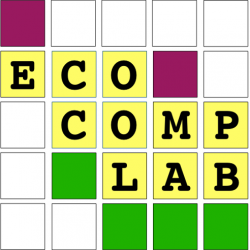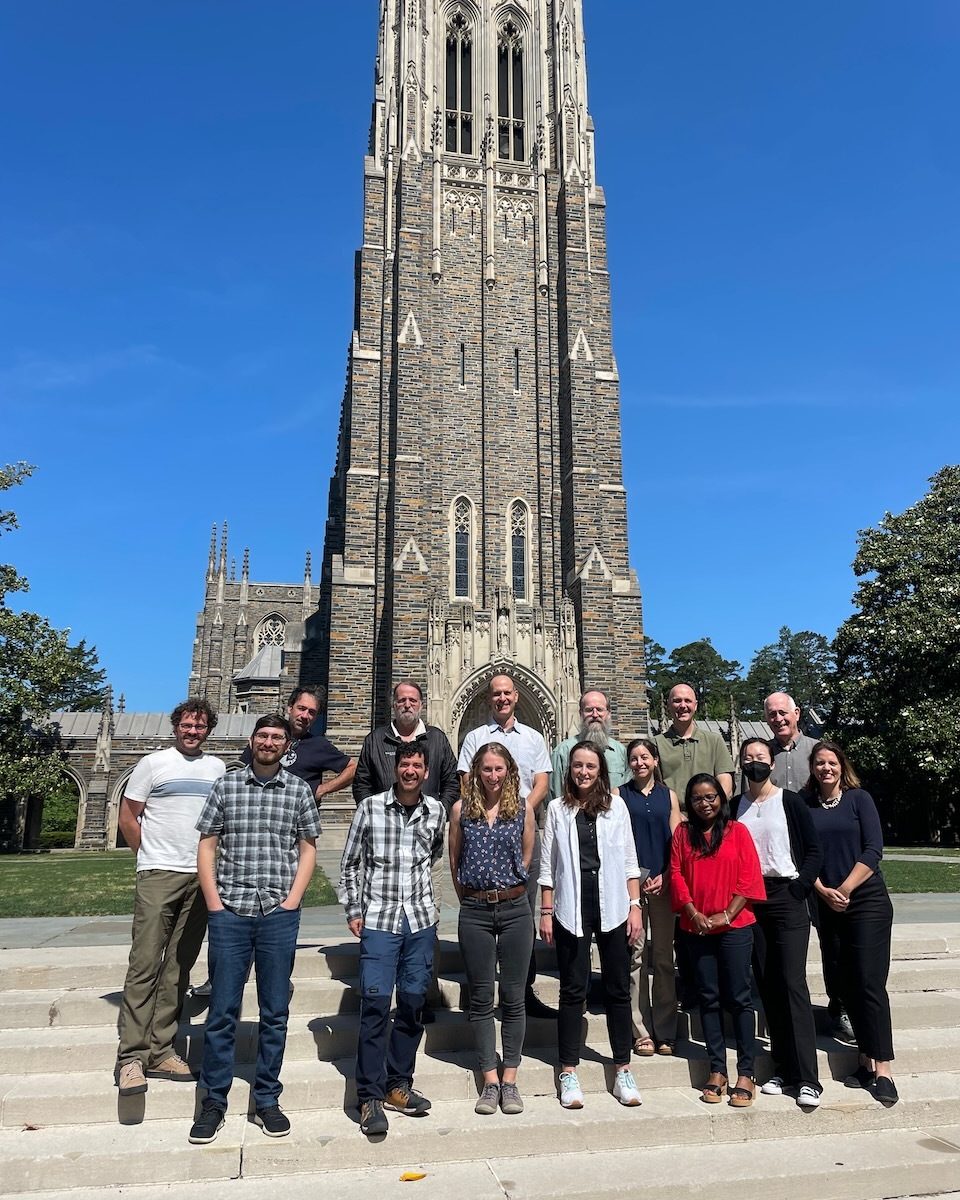HFSP PhD position available
A full-time PhD position in theoretical ecology is available in the lab of Dr. Shai Pilosof (Ben Gurion University) as part of an Human Frontier Science Program in collaboration with Dr. James Hall (University of Liverpool) and Prof. Manlio De Dominico (University of Padua).
You will develop novel theoretical and computational models to explore the eco-evolutionary dynamics of microbial ecological networks and how they respond to changing environments. Theoretical results will be integrated with experiments on bacteria. You should have an MSc that has combined biology with computational or mathematical methods.
The position is available for 4 years.
Project description
In a world fraught with human impact, understanding how organisms, and communities of organisms, respond to environmental changes, is one of the most fundamental challenges in biology today. This collaborative project integrates theoretical and modelling approaches with experimental microbiology to explore the response of ecological communities to environmental change, using bacteria as a model. Not only are microbes a tractable system for exploring general principles of community ecology, they also play a fundamental role in global biogeochemistry, human and animal health and disease, food security, and ecosystem function. Understanding how microbial communities respond to perturbations, both at the species level, and at the community level, is therefore a pressing issue.
Network theory offers a powerful tool for understanding community ecology. Communities can be described as networks, with nodes indicating different individuals (or species), and edges indicating the interactions. However, these networks are not static, with interactions varying with environmental change, and over evolutionary timescales. Furthermore, individuals often interact simultaneously in qualitatively different ways. For example, in microbial communities, species compete for resources, while exchanging genes on plasmids or other mobile genetic elements.
In this project we will model the eco-evolutionary dynamics of highly-diverse microbial communities, and the emerging structures using state-of-the-art multilayer networks. We will also develop theory to understand how these networks respond to environmental perturbation. These models will be integrated with experital results from model bacterial systems.
This project is a highly interdisciplinary, international collaboration between groups based in Israel (Dr. Shai Pilosof), UK (Dr. James Hall), and Italy (Prof. Manlio De Domenico), bridging ecology and evolution, microbiology, and statistical physics.
Location and travel
The candidate will be located in Beer-Sheva, Israel and will work principally with Dr. Shai Pilosof. In addition, the candidate will visit the labs of the other team members in Italy and UK to enhance collaborations and knowledge sharing. All travel is funded.
Duties and responsibilities
- Developing theoretical and/or computational models of eco-evolutionary dynamics. Analysing stability and structure of multilayer networks.
- Cooperating with team members, preparation of manuscripts, and disseminating findings, primarily in the form of academic publications and conference presentations.
- Regularly meeting with members of the wider project team, including in-person and virtual meetings, to communicate results and assist in integrating modelling with experiments.
Experience, skills and qualifications
- An MSc that has combined biology with computational or mathematical methods.
- Experience with modeling or mathematically studying biological systems.
- Programming skills in at least one of: Julia, Python, R.
- Desirable: Agent-based modeling is an advantage. For candidates with no experience — the ability to quickly learn ABMs.
- Excellent interpersonal and communication skills, written and verbal.
- Excellent skills in scientific writing and presentation, e.g. oral presentation at national/international meeting.
Personal skills
- Dependable, reliable, and self-motivated.
- Able to work in a team environment and contribute to the development and growth of the research team, including students and visiting collaborators.
- Willingness to visit collaborators’ labs in Italy and the UK.
- Enthusiasm for microbiology and community ecology.
- Excellent communication and interpersonal skills.
HFSP Postdoctoral position available
A full-time postdoctoral position in theoretical ecology is available in the lab of Dr. Shai Pilosof (Ben Guriuon University) as part of an Human Frontier Science Program in collaboration with Dr. James Hall (University of Liverpool) and Prof. Manlio De Dominico (University of Padua).
You will develop novel theoretical and computational models to explore the eco-evolutionary dynamics of microbial ecological networks and how they respond to changing environments. Theoretical results will be integrated with experiments on bacteria. You should have a PhD that combined biology with quantitative fields such as theoretical ecology, applied mathematics or physics. Expertise in agent-based modeling is desirable.
Project description
In a world fraught with human impact, understanding how organisms, and communities of organisms, respond to environmental changes, is one of the most fundamental challenges in biology today. This collaborative project integrates theoretical and modelling approaches with experimental microbiology to explore the response of ecological communities to environmental change, using bacteria as a model. Not only are microbes a tractable system for exploring general principles of community ecology, they also play a fundamental role in global biogeochemistry, human and animal health and disease, food security, and ecosystem function. Understanding how microbial communities respond to perturbations, both at the species level, and at the community level, is therefore a pressing issue.
Network theory offers a powerful tool for understanding community ecology. Communities can be described as networks, with nodes indicating different individuals (or species), and edges indicating the interactions. However, these networks are not static, with interactions varying with environmental change, and over evolutionary timescales. Furthermore, individuals often interact simultaneously in qualitatively different ways. For example, in microbial communities, species compete for resources, while exchanging genes on plasmids or other mobile genetic elements.
In this project we will model the eco-evolutionary dynamics of highly-diverse microbial communities, and the emerging structures using state-of-the-art multilayer networks. We will also develop theory to understand how these networks respond to environmental perturbation. These models will be integrated with experital results from model bacterial systems.
This project is a highly interdisciplinary, international collaboration between groups based in Israel (Dr. Shai Pilosof), UK (Dr. James Hall), and Italy (Prof. Manlio De Domenico), bridging ecology and evolution, microbiology, and statistical physics.
Location and travel
The candidate will be located in Beer-Sheva, Israel and will work principally with Dr. Shai Pilosof. In addition, the candidate will visit the labs of the other team members in Italy and UK to enhance collaborations and knowledge sharing. All travel is funded.
Duties and responsibilities
- Developing theoretical and/or computational models of eco-evolutionary dynamics. Analysing stability and structure of multilayer networks.
- Cooperating with team members, preparation of manuscripts, and disseminating findings, primarily in the form of academic publications and conference presentations.
- Regularly meeting with members of the wider project team, including in-person and virtual meetings, to communicate results and assist in integrating modelling with experiments.
Experience, skills and qualifications
- PhD in ecology, applied mathematics, physics, or related field.
- Knowledge of biological (preferably ecological) systems.
- Excellent skills in Modeling or mathematically studying ODE systems.
- An understanding of how experimental approaches can inform theoretical ecology (and vice-versa).
- Strong programming skills in at least one of: Julia, Python, R.
- Desirable: Agent-based modeling is an advantage. For candidates with no experience — the ability to quickly learn ABMs.
- Excellent interpersonal and communication skills, written and verbal.
- Excellent skills in scientific writing and presentation, e.g. oral presentation at national/international meeting.
Personal skills
- Highly motivated to work and problem-solve independently.
- Able to work in a team environment and contribute to the development and growth of the research team, including students and visiting collaborators.
- Willingness to visit collaborators’ labs in Italy and the UK.
- Consistent ability to produce high quality work.
- Dependable, reliable, and self motivated.
- Enthusiasm for microbiology and community ecology.
- Excellent communication and interpersonal skills.
Shai received a HFSP Research Grant Award 2022
HFSP supports cutting-edge, risky projects and it is the only program that enables true global collaboration among international teams of scientists with laboratories in different countries.
Shai received the grant together with Dr. Manlio De Domenico, University of Padua, Italy and Dr. James Hall, University of Liverpool, UK. We have open positions for this project!
The project deals with a fundamental challenge in biology, relevant to a world fraught with human impact: Can we predict the response of organisms to environmental changes? Animals, plants, bacteria, and other organisms can cope with environmental changes – such as those resulting from climate change – by slightly adjusting their traits. For example, some animals can change their diets or move to areas where environmental conditions are adequate. However, organisms do not live in isolation but in diverse communities where they form complex networks of interactions. So how do organisms cope with environmental changes when embedded within their communities? They will investigate this question by integrating theory and experiments using bacteria as a model organism. Bacteria are a dominant life form, colonizing almost every environment. In addition, bacteria interact in many ways. For example, they compete for resources or produce metabolites that other bacteria can use. Therefore, they are highly dependent on community interactions. While targeted at bacteria, insights from this work will have broad implications for other organisms. This work is only achievable through a unique international collaboration that bridges ecology and evolution, microbiology, and statistical physics.
An ISF grant to study ecological multilayer networks
Shai has received a grant from the Israel Science Foundation to study ecological multilayer networks. The lab will be developing both theory and methodology, and using these to analyze multiple datasets. We hope to further our understanding of what can be learned from taking the different layers (temporal, spatial, etc) into account, and in which ecological networks it is most beneficial to do so.




